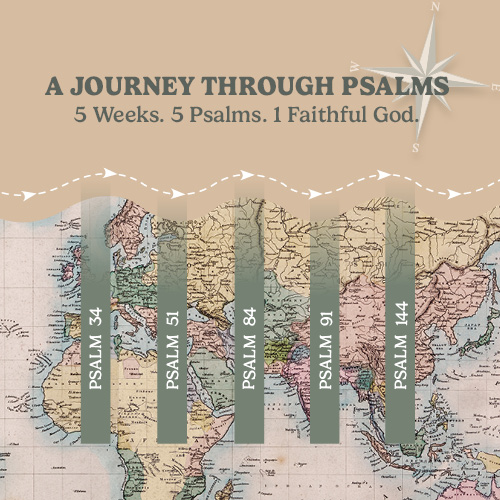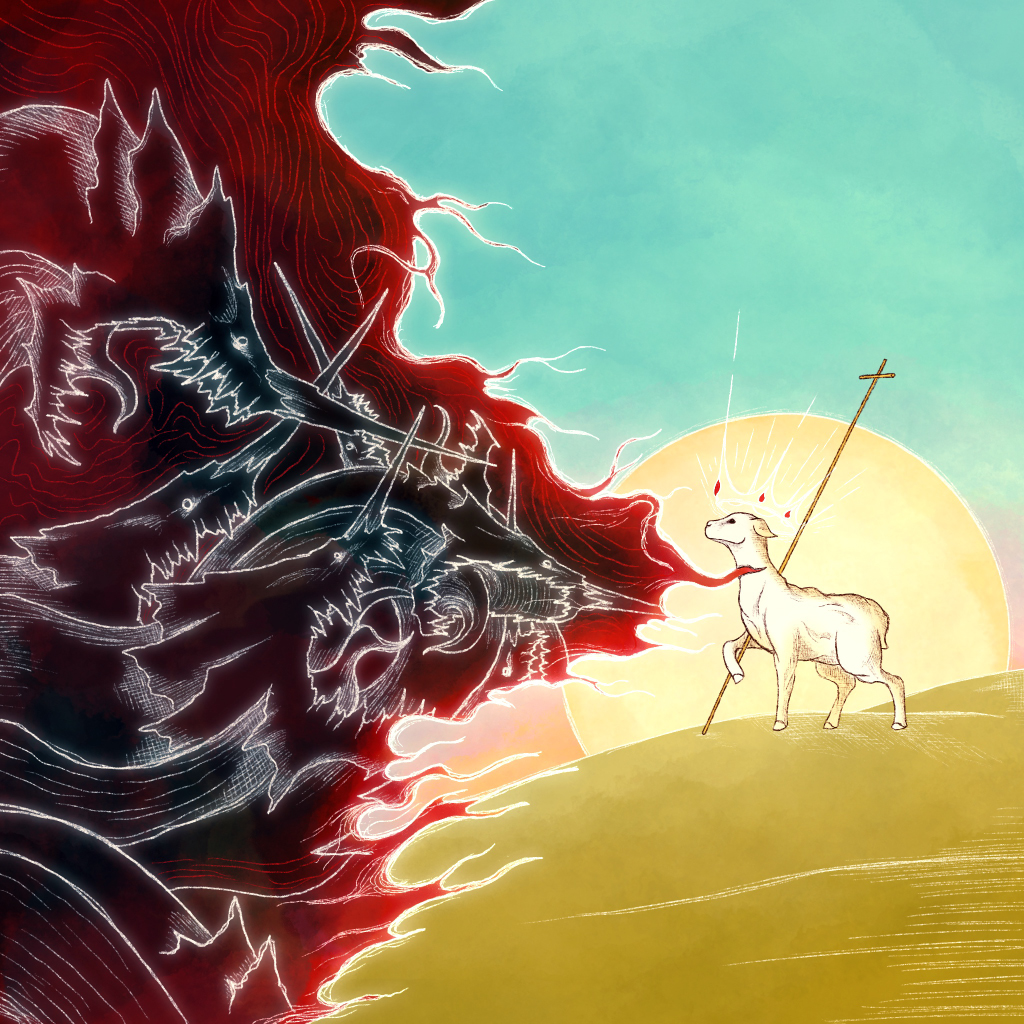Lent - Day 28
Posted on: March 28, 2020
by: Gerrit Dawson, Senior Pastor
by: Gerrit Dawson, Senior Pastor
Day 28 Saturday
MALCHUS, BARABBAS AND JOHN MARK
That which we have seen and heard we proclaim also to you, so that you too may have fellowship with us; and indeed our fellowship is with the Father and with his Son Jesus Christ (1 John 1: 3).
FOLLOWING THE SCRIPT
Today we meet three characters from Passion Week about which we know almost nothing. Yet each one had an encounter with Jesus. Holy imagination will lead us to ponder their stories.
MALCHUS
John 18: 10-11
Then Simon Peter, having a sword, drew it and struck the high priest’s servant and cut off his right ear. (The servant’s name was Malchus.) So Jesus said to Peter, “Put your sword into its sheath; shall I not drink the cup that the Father has given me?”
Luke 22: 49-51
And when those who were around him saw what would follow, they said, “Lord, shall we strike with the sword?” And one of them struck the servant of the high priest and cut off his right ear. But Jesus said, “No more of this!” And he touched his ear and healed him.
CAST NOTES FOR MALCHUS
The Gospels describe Malchus as the servant of the high priest. More literally he was a bond slave. His life was not his own. He served as a ready and ever-available assistant to Caiaphas, even late on a Passover night. He was related to another servant who would shortly challenge Peter (John 18: 26). Malchus’ job was to listen for orders and then fulfill them. He had come with the band of soldiers to get the man his master wanted. He was not allowed to be armed. He never expected a sword to be drawn against him. Imagine his emotions as a wild Peter struck out: surprise, fear, searing pain, panic that he might die as blood spattered everywhere. The roar in his head that replaced his hearing. Then the man his master called the chief of sinners reached toward him. Maybe Malchus flinched expecting more pain. But the hand soothed. The blood stopped spurting; the throb ceased; the terror went away. Calm, warmth, peace, hearing as clear as he’d ever known. This blasphemer, such a threat, suddenly seemed to be the giver of life. Could Caiaphas be wrong?
BARABBAS
Mark 15: 6-13
Now at the feast [Pilate] used to release for them one prison for whom they had asked. And among the rebels in prison, who had committed murder, there was a man called Barabbas. And the crowd came up and began to ask Pilate to do as he usually did for them. And he answered them, “Do you want me to release for you the King of the Jews?” For he perceived that it was out of envy that the chief priests had delivered him up. But the chief priests stirred up the crowd to have him release for them Barabbas instead. And Pilate again said to them, “Then what shall I do with the man you call the King of the Jews?” And they cried out, “Crucify him.”
CAST NOTES FOR BARABBAS
Barabbas was a rebel. One of the zealots who sought to overthrow Rome’s rule by violence, whether acts of guerilla terror or outright rebellion. He had been jailed for murder. An angry, rough man, a true enemy of the state. Ironically, his name means “son of the father.” He knew he deserved death for the deaths he had dealt, and he was proud of it. Yet Pilate released him while Jesus, the true Son of the Father in heaven, sinless and full of love, was sentenced to death. Barabbas experienced literally the great exchange of Jesus’ life for his.
What did Barabbas feel when he was released? Did he know of Jesus? Did he experience survivor guilt? Barabbas reminds me of the famous Dickens chapter, “Recalled to life.” I hope he became a disciple!
CAST NOTES FOR MARK
Throughout Christian history, readers of the Gospel have conjectured that this young man was Mark himself. This curious incident is not relayed in the other three Gospels. We know from Acts 12: 12 that “John, whose other name was Mark,” was from Jerusalem and joined Paul on his first missionary journey. I like to think that Mark the Gospel writer was an eyewitness to the life, death and resurrection of Jesus, and that he humbly included this brief account of his own wilting and fleeing at the seizing of Jesus. His shame is clearly illustrated by the picture of being so afraid that he was willing to run naked through the streets. The incident motivated him through years of travels and mission for Jesus’ sake.
PRAYING IN CHARACTER
Malchus: I believed whatever my master told me. I was proud to serve a man so high, so learned and seemingly so just. But I have been bound to the wrong man. I cannot leave his service. But my heart is yours. You had the power to destroy us all. But instead you healed me and then let them have you. I have seen love now, and can never go back.
Barabbas: Jesus, they traded you for me. You didn’t have to go to condemnation. I could see this was your decision. I thought you were a fool. That I would never look back. But you have haunted me. Somehow claimed me. I cannot get away from you. You bought my life with yours. How now shall I live?
Mark: Ah, Lord Jesus, running naked in the streets was the least of the sins of my youth! Yet the shame of fleeing from your need still burns me! Would I be any different today?
These are written so that you may believe that Jesus is the Christ, the Son of God, and that by believing you may have life in his name (John 20: 31).
Posted in:




 Close
Close












